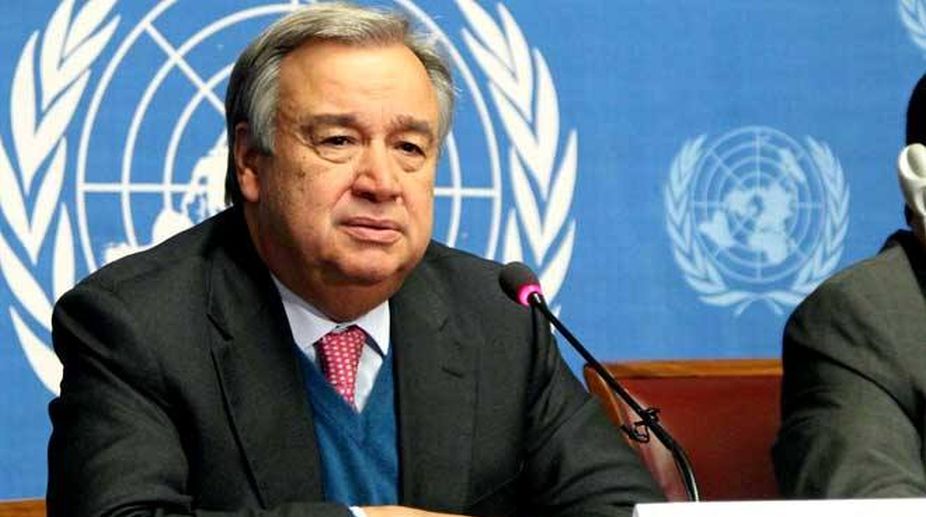‘Boss Sahab’, says Fijian PM in praise of PM Modi
Fiji Prime Minister Sitiveni Ligamamada Rabuka effusively praised Prime Minister Narendra Modi on Wednesday and called him the real "Boss" of the world.

Antonio Guterres (PHOTO: Facebook)
India has shown a strong commitment to multilateralism through its engagement in peacekeeping, UN Secretary-General Antonio Guterres said as he honoured those who died in the line of duty.
At a reception hosted by the Permanent Mission of India to the UN on International Day of UN Peacekeepers on Wednesday, Guterres noted that India is the second-largest troop contributor to peacekeeping missions.
Advertisement
It currently deploys more than 7,600 military and police personnel to UN peace operations in Afghanistan, the Democratic Republic of the Congo, Haiti, Lebanon, Liberia, the Middle East, South Sudan, Sudan and the Western Sahara.
Advertisement
"This is an absolutely amazing contribution your country has given to world peace," he said.
"India has shown its strong commitment to multilateralism exactly by its engagement in peacekeeping," Guterres said.
He also honoured the memory of the 163 Indian peacekeepers who sacrificed their lives in the line of duty under the UN Flag.
Two Indian peacekeepers, Rifleman Brijesh Thapa who served with the UN Organisation Stabilisation Mission in the Democratic Republic of the Congo (MONUSCO) and Private Ravi Kumar who was deployed with the UN Interim Force in Lebanon (UNIFIL) posthumously received the Dag Hammarskj ld Medal this year.
India's Permanent Representative to the UN Ambassador Syed Akbaruddin received the medal on behalf of the fallen Indian peacekeepers at a ceremony.
The prestigious UN medal was awarded to 117 military, police and civilian personnel from 43 nations who lost their lives while serving in peacekeeping operations during 2016.
Guterres said in a changing peace environment, "we are seeing more and more peacekeeping operations where peace is elusive. Things are changing in the world, he said adding that the UN and its member states need to think how the peacekeeping mandates are designed and how troops are equipped and trained. There is also need to explore partnerships with those involved in enforcement of peacekeeping and in counter- terrorism operations.
He emphasised that in the context of reforms, there is need for a "serious discussion" on how "we need to adapt to the changing circumstances that make peacekeeping more challenging.
"It is a challenge we have to face together and find together the solutions that are required to make peacekeeping more effective and for peacekeepers to be more safe," he added.
Currently more than 96,000 uniformed personnel from 124 troop and police-contributing countries serve under the blue flag, alongside more than 15,000 international and national civilian staff and nearly 1,600 United Nations Volunteers.
India has provided almost 200,000 troops in nearly 50 of the 71 peacekeeping missions mandated over the past six decades, including 13 of the current 16 missions.
Advertisement